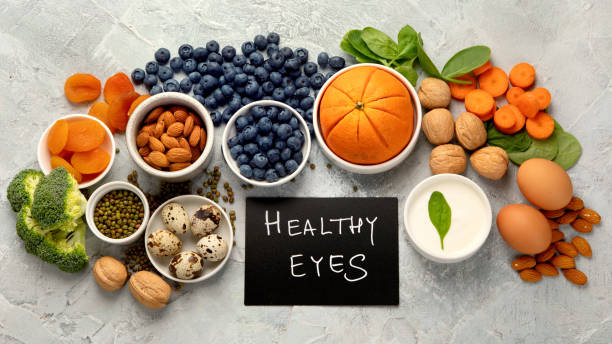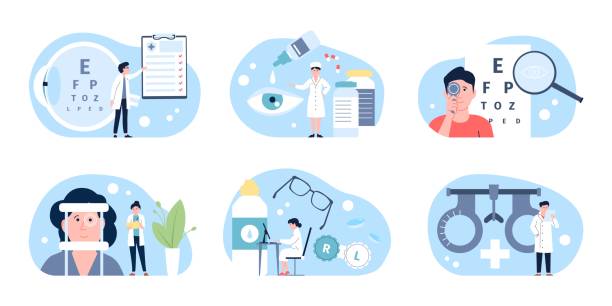Why Eggs Are Essential for Eye Health
Good vision is vital for everyday life, from reading and driving to working on digital screens. Unfortunately, as we age, our eyesight tends to decline due to factors like oxidative stress, poor nutrition, and exposure to harmful blue light. However, eating the right foods can slow down this process and keep your eyes functioning at their best.
One of the most powerful foods for eye health is the humble egg. Packed with essential nutrients that support vision, eggs provide a simple, affordable, and delicious way to care for your eyes. Whether you are looking to prevent age-related eye diseases or reduce eye strain, incorporating eggs into your diet is a smart choice.
Eggs are also one of the most accessible superfoods. Unlike expensive supplements or exotic health foods, eggs are affordable and widely available, making them an easy addition to any diet. Plus, they are incredibly versatile, allowing you to prepare them in countless ways to suit your taste preferences and dietary needs.
In addition to their nutritional benefits, eggs offer a natural, whole-food alternative to synthetic vitamins and supplements. The nutrients in eggs work together synergistically, providing a balanced and bioavailable source of essential eye-boosting compounds. This means your body can absorb and utilize these nutrients more efficiently compared to isolated supplements.
Another advantage of eggs is their role in overall health. A diet rich in eggs not only supports eye health but also contributes to brain function, muscle maintenance, and heart health. The protein, healthy fats, and antioxidants found in eggs make them a well-rounded choice for anyone looking to improve their overall well-being while protecting their vision.

Nutrients in Eggs That Benefit Your Eyes
Eggs contain several eye-boosting nutrients that can help prevent vision problems and support overall eye function. Let’s take a closer look at the key nutrients in eggs and how they contribute to eye health.
1. Lutein and Zeaxanthin: Powerful Antioxidants
Lutein and zeaxanthin are carotenoids that act as natural antioxidants. These yellow-orange pigments are found in high concentrations in the retina, particularly in the macula, which is responsible for sharp central vision. Their main role is to filter out harmful blue light from screens and sunlight, protecting the eye’s delicate tissues from oxidative damage.
Studies suggest that higher intake of lutein and zeaxanthin is associated with a lower risk of eye conditions such as:
- Age-related macular degeneration (AMD): A leading cause of blindness in older adults.
- Cataracts: Clouding of the eye’s lens, leading to blurry vision.
- Digital eye strain: Excessive screen time can cause discomfort, but these nutrients help reduce stress on the eyes.
Eggs are an excellent source of these carotenoids, and they have the added benefit of being highly bioavailable. This means that your body absorbs lutein and zeaxanthin from eggs more efficiently than from plant-based sources like spinach and kale (American Optometric Association).
2. Vitamin A: Essential for Night Vision
Vitamin A is another critical nutrient for eye health. It plays a vital role in maintaining the clarity of the cornea, the transparent layer covering the eye. Without enough vitamin A, you may experience:
- Night blindness: Difficulty seeing in low-light conditions.
- Dry eyes: Insufficient tear production can lead to irritation and discomfort.
- Increased risk of infections: A weak cornea is more prone to bacterial and viral infections.
Egg yolks are a great source of vitamin A, helping to ensure that your eyes remain well-lubricated and capable of adapting to different lighting conditions.
3. Omega-3 Fatty Acids: Supporting Retinal Function
Omega-3 fatty acids, particularly DHA (docosahexaenoic acid), are crucial for maintaining the health of the retina. DHA is a structural component of the retina, and a deficiency in this essential fatty acid can lead to vision problems.
Benefits of omega-3s for eye health include:
- Reducing dry eye syndrome: Omega-3s support tear production, preventing dry, irritated eyes.
- Protecting against inflammation: Chronic inflammation is linked to eye diseases like AMD and diabetic retinopathy.
- Enhancing visual development in infants: DHA is critical for proper eye development in babies, making eggs a great food choice for pregnant women.
Omega-3-enriched eggs, which come from hens fed a diet rich in flaxseeds or fish oil, provide an even higher concentration of these beneficial fatty acids.
4. Zinc: Boosting Eye Function
Zinc is an essential mineral that helps transport vitamin A from the liver to the retina. It plays a major role in maintaining healthy photoreceptor cells in the eye, which are responsible for detecting light.
The benefits of zinc for vision include:
- Improved night vision: Zinc deficiency is linked to night blindness.
- Reduced risk of AMD: This mineral helps slow the progression of macular degeneration.
- Stronger immune response: Zinc supports eye health by reducing inflammation and the risk of infections.
Eggs contain a good amount of zinc, making them an excellent choice for supporting overall eye function.

How Many Eggs Should You Eat for Eye Health?
When it comes to eggs and eye health, moderation is key. Most nutrition experts recommend consuming one to two eggs per day as part of a balanced diet. This amount provides a sufficient dose of lutein, zeaxanthin, vitamin A, and other essential nutrients without exceeding dietary cholesterol recommendations.
Several studies have shown that eating up to one egg per day does not negatively impact heart health in most individuals and can provide significant benefits for vision. In fact, a study published in the journal Clinical Nutrition found that consuming one egg daily significantly increased levels of lutein and zeaxanthin in the blood, supporting long-term eye health.
However, for those with existing health conditions, such as high cholesterol or heart disease, it is best to consult with a healthcare professional before increasing egg consumption. If you prefer variety, you can balance your diet with other eye-friendly foods such as leafy greens, carrots, and fatty fish to further enhance your nutrient intake.
Additionally, choosing pasture-raised or omega-3-enriched eggs can provide even greater health benefits, as these eggs contain higher levels of omega-3 fatty acids and antioxidants, which are beneficial for the eyes and overall well-being.
Best Ways to Eat Eggs for Eye Health
To maximize the eye health benefits of eggs, it’s important to prepare them in ways that retain their key nutrients. Here are some of the best ways to eat eggs for optimal vision support:
- Soft-boiled or poached: These methods help preserve lutein and zeaxanthin, which can be damaged by high heat.
- Scrambled with leafy greens: Adding spinach or kale to scrambled eggs boosts their antioxidant content, providing even more support for eye health.
- Omelets with colorful vegetables: Bell peppers, carrots, and tomatoes add extra vitamins and carotenoids that complement the nutrients in eggs.
- Hard-boiled as a snack: A quick and easy way to get an eye-healthy dose of protein, vitamins, and minerals.
- Cooked with healthy fats: Using olive oil or avocado oil instead of butter can help enhance the absorption of fat-soluble vitamins like A and E.
For best results, pair eggs with other nutrient-dense foods like nuts, seeds, and fish to create a diet that fully supports eye health.eeds, or olive oil, can further enhance the absorption of fat-soluble vitamins like A and E.

Other Foods That Support Eye Health
While eggs are a fantastic choice for eye health, incorporating other nutrient-rich foods can provide even greater protection for your vision. Consider adding:
- Leafy greens (spinach, kale, collard greens): High in lutein and zeaxanthin.
- Carrots and sweet potatoes: Packed with beta-carotene, a precursor to vitamin A.
- Fatty fish (salmon, tuna, sardines): A great source of omega-3s.
- Nuts and seeds (almonds, sunflower seeds, chia seeds): Provide vitamin E to combat oxidative stress.
- Citrus fruits (oranges, lemons, grapefruit): Boost vitamin C to strengthen eye tissues.
By combining eggs with these other superfoods, you can create a well-rounded diet that supports long-term eye health.
Conclusion: Add Eggs to Your Diet for Healthier Eyes
Eggs are a simple, affordable, and delicious way to support your eye health. With powerful nutrients like lutein, zeaxanthin, vitamin A, omega-3 fatty acids, and zinc, they help protect against common vision problems and promote overall eye function.
The best part about eggs is their versatility. You can enjoy them in countless ways—boiled, scrambled, poached, or baked—making it easy to incorporate them into your diet without getting bored. Their natural combination of nutrients also works synergistically, offering maximum benefits for your eyesight while supporting other aspects of your health, such as brain function and immune support.
In addition to eating eggs, combining them with other eye-friendly foods such as leafy greens, carrots, and fish can enhance their benefits. A well-rounded, nutrient-rich diet is the key to long-term vision health and overall wellness.
Now that you know how powerful eggs can be for your vision, why not start adding them to your meals today? Whether it’s a quick breakfast omelet or a nutritious egg salad, making eggs a regular part of your diet is a smart move for your eyesight.
Have you noticed any improvements in your vision after adding eggs to your diet? Share your thoughts and experiences in the comments below!

